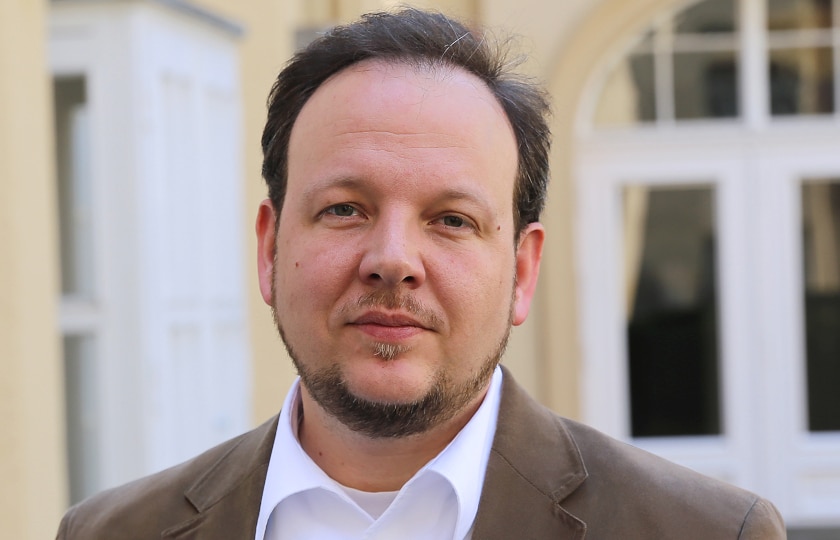News
Reports, Publications, Projects, Blog Posts & Podcasts from the Institute


Growing Up in Data-Intensive and Automated (Media) Environments
Dr. Claudia Lampert examines changing usage practices and possible implications for socialization research in the chapter “Growing Up in Data-Intensive and Automated (Media) Environments” of the handbook “Media Socialization in ‘Smart’ Environments. Self- and Social Development in the Context of Datafication and Automation,” edited by Laura Sūna and Wolfgang Reißmann.


Journalism between Burnout and Vocation
Media researcher and journalist Anna von Garmissen talks to host Alexander Matzkeit about the state of journalism in Germany in the podcast “Läuft” produced by epd medien and the Grimme Institute. The discussion is based on the results of three studies, which she considers alarming, and which she summarized in a guest article for epd medien.


Why Banning Social Media Is Not the Solution
In Australia, children under the age of 16 will no longer be allowed to create social media profiles as of December 2025. More and more European countries are also planning to introduce age limits for social media. Dr. Stephan Dreyer, an expert on legal issues at the intersection of youth protection and data protection, explains that a ban would actually weaken youth protection and be disproportionate.


Algorithmic Amplification of Negative Discourse as a Systemic Risk
How does attention-economy-driven algorithmic amplification of conflict-driven and negative-emotional communication distort public discourse? And does this distortion constitute a systemic risk under the Digital Services Act (DSA)? This blog article refers to our previous blogpost on "Platform Badges for Civic Communication", explains why such interventions are needed, and outlines how they could address these systemic risks.


Stephan Dreyer Appointed to Expert Commission
As part of a pilot project, the German Association for Voluntary Self-Regulation of Television (FSF) and the German Association for Voluntary Self-Regulation of Digital Media Service Providers (FSM) are developing quality standards for automated and AI-supported evaluation systems, overseen by the Commission for the Protection of Minors in the Media (KJM). Dr. Stephan Dreyer is developing and conducting tests on automated and AI-supported evaluation systems for youth media protection.


“He Just Does Everything Right. He’s Simply Smart” – Young People’s Perspectives on AI
AI applications are no longer used just for homework, but also as advisors and conversation partners. This blog post takes a look at young people's experiences with AI and shows that schools and parents often lack opportunities to discuss the role of AI in our daily lives. Safer Internet Day offers a good opportunity to start this conversation.


Generative AI from the Perspective of Young People
The use of generative AI, especially ChatGPT, is now firmly established among young people online. A study by Kira Thiel, Claudia Lampert and Eleysa Memis explores young people's views on generative AI, highlighting its significance in their daily lives.


Reform of the State Media Treaty: An Opportunity for Dialogue in the Digital World
Hamburg, February 9, 2026: Public media has a new responsibility in the digital public sphere. They should not only broadcast content but also open spaces for debate and moderate and structure them reliably. A study entitled "The Dialogue Function of Public Service Media — Impulses from a Future Workshop for Media Policy," commissioned by the nonprofit think tank Agora Digitale Transformation and presented today at the Hamburg State Representation in Berlin, shows how this role change can be achieved and what reforms are necessary to make it happen.


Public Service Media Enabling Dialogue
For the project “Dialog Formats in Public Service Media,” Magdalena Stratmann conducted a literature analysis on “The Role of Public Service Media as Enablers of Dialogue in Digitalized Societies.” This analysis is now available for download as a working paper.
Event dates

How European Rules Shape Our Digital Future
2. March 2026Matthias Kettemann will speak at the Königstein Forum about how European rules are shaping our digital future. The annual theme of the event series is "Daring to Be More European—But How?" The lecture will be broadcast via livestream.


Annual Conference of the DGPuK 2026
18. March 2026The 71st annual conference of the German Communication Association (DGPuK) will take place from March 18 to 20, 2026, and will be hosted by the Institute of Journalism at TU Dortmund University. The conference theme is "#Science #Communication #Democracy." Several HBI researchers will present their work or participate in panels.


On the Future of Public Broadcasting
19. March 2026Dr. Hans-Ulrich Wagner will participate in a panel discussion titled “Cultural Mandate and Program Development in Public Broadcasting.” The event is part of the symposium, "Cultural Education and Participation in Transition: The Cultural Sector between Local and Global Interests” at Johannes Gutenberg University Mainz.









